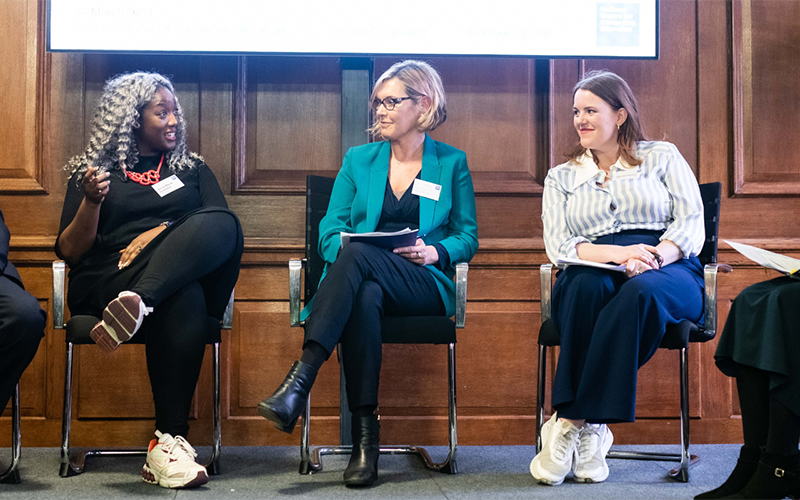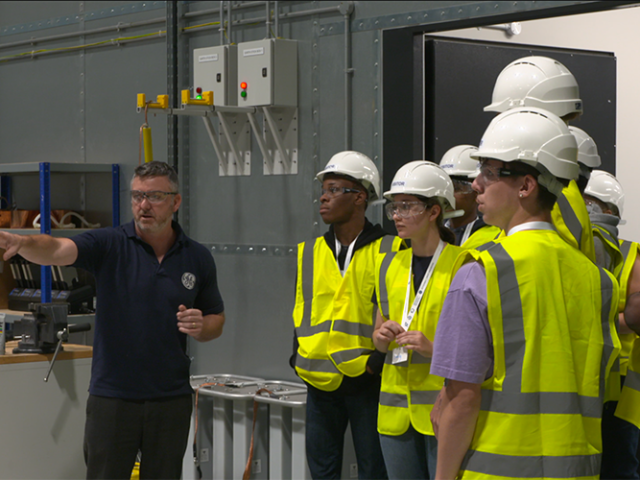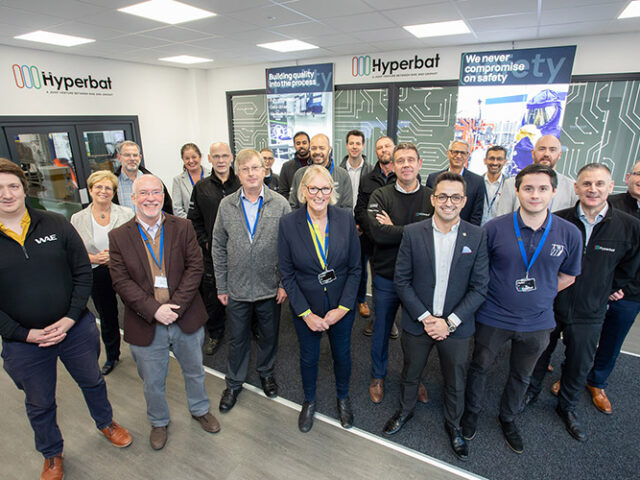Key figures involved in ensuring every child in England receives a world-leading computing education met in London to outline how they’re aiming to help over two million young people, engage four times more girls and train over 20,000 teachers in computing during the next few years.
The event followed on from the recent news that the Department for Education has renewed its funding for STEM Learning to deliver the next phase of its national support for computing education in England.
DfE colleagues joined the National Centre for Computing Education’s Academic Board, the STEM Learning team plus hugely valued industry funders and supporters at the event at Church House, Westminster.
With a gender gap still existing in computing – something which was highlighted in this NCCE blog published on International Women’s Day – a panel discussed their views on how this can be addressed ahead of the launch of the NCCE’s new Gender Insights programme.
The event began with keynote speaker Stuart Miller, Director for Curriculum & General Qualifications at the DfE, outlining how the focus remains on raising awareness of careers in computing for young people across England.
He said: “It’s more important than ever that all pupils are taught how to use, evaluate an innovate unfamiliar technologies – and taught how to use them safely, responsibly and respectfully too. This will hopefully enable them to access wide range of exciting careers.”
Dave Gibbs, Education Strategy Lead at STEM Learning, then briefed the room on priorities and plans.
He highlighted an emphasis on working together to enrich the curriculum, an improved and integrated CPD offer – including more support for A level Computer Science – the ongoing partnership with The British Computer Society and improving the NCCE Computing Quality Framework.
He added: “We know girls are significantly under-represented in Computing, so the Gender Insights programme will empower many more girls into GCSE Computer Science, and lead more girls towards a rewarding career in this field.”
Anne-Marie Imafidon MBE, CEO of Stemettes, Rachel Arthur, Head of Computing at Teach First, Sian Harris, Chief Education Officer at the Raspberry Pi Foundation and Rachid Hourizi then discussed their ideas around breaking barriers and building bridges for girls in computing.
The Q&A was chaired by Julia Adamson, Managing Director for Education & Public Benefit at BCS, and the passion for providing a clear pathway for young girls was evident as every panellist spoke.
Anne-Marie said: “There’s something stopping the female talent out there choosing a computing career – and I’m excited to see how this changes in the future.”
Gill Collinson, STEM Learning’s Director of Education and Programmes, closed the event by warmly thanking the DfE, industry partners, funders and Computing hubs for the huge impact they have already made on young people’s future prospects.




